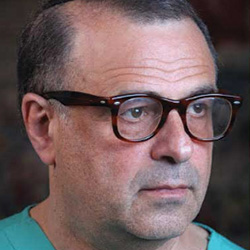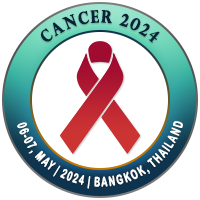
Boris Petrikovsky
NYU School of Medicine, USATitle: Artificial Intelligence in Cancer Screening: CitiScreen Project
Abstract
Precision medicine is a novel trend for treatment and prevention that emphasizes individual variability in genes, family history, and lifestyle of each person. CitiScreen put together a fragmented screening system by creating screening algorithms. These individual screening algorithms combine ultrasound, MRI, CT imaging, genetic and tumor markers, as well as other technologies
CitiScreen steps for cancer screening
a) Screening for risk factors in a healthy individual
b) Genetic tests for specific cancers (blood or saliva)
c) Screening for the presence of cancer precursors
d) Blood screening for tumor markers
e) Smears (dental, urinary, vaginal, etc.)
Screening results are used for individual screening algorithms which come with practical recommendations. eq. frequency of colonoscopy, need for MRI screening, etc. CitiScreen algorithms are constantly updated based on changes. circumstances (age, new cases in the family, changes in living habits, etc.) and new advancements in the science of cancer screening. CitiScreen subscribers receive yearly screening recommendations on the frequency and type of screening modalities.
Results: Citiscreen has been implemented into clinical practice on a limited basis since 2019 and included 192 cases. It is known that clinical value of any screening program is time and labor-consuming. At the time of this report, the following malignancies were detected: 1- borderline ovarian cancer, 1- stage one ovarian cancer, 2 early-stage melanomas, one early-stage endometrial carcinoma, and 2 late-stage cancers (colon and pancreas). The diagnosis of early-stage cancers is encouraging while the diagnosis of late-stage diseases in first-time patients is understandable since the screening was performed on patients with preexisting cancer. With the increasing use of the Citiscreen program, we expect to detect malignancies and/or its precursors at treatable stages.
Conclusions: Conclusions: Individualized approach to cancer screening showed significant promise in detecting malignancies at early treatable stages, thus Improving survival and often eliminating the economic burden of extensive surgery, radiology, and chemotherapy.
Biography
Boris Petrikovsky works at the New York University, School of Medicine, USA.

